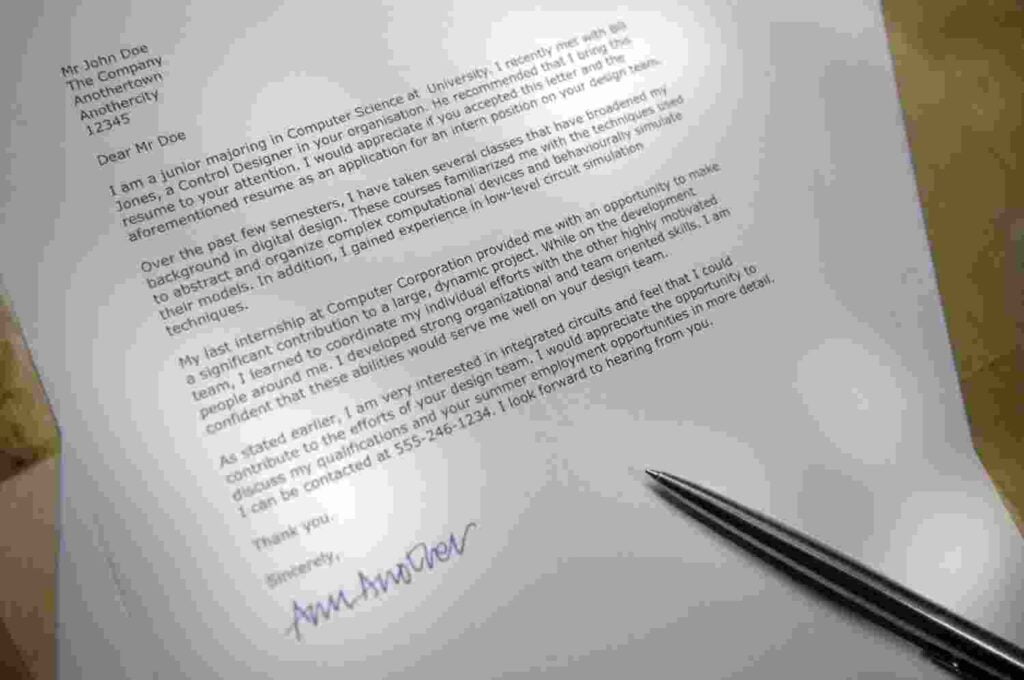Do I Need a Cover Letter and When It’s Not Required? All the answers you need have been discussed in this article, including other important tips you need to know.
When applying for jobs, you may find yourself wondering ‘do I need a cover letter?’ A cover letter accompanies your CV and provides hiring managers further details about how your experience and skills align with the role as well and your motivation for applying. As cover letters take time and effort to write and perfect, many jobseekers understandably choose to skip this step and only send their CV.
Additionally, recruiters are divided on this, with some saying they’ll go the extra mile to read them and others saying they ignore them due to time constraints.
Therefore, when is it beneficial to send a cover letter and when is it not required? We’ll look at the different situations when a cover may or may not be needed:

When you need a cover letter
In most cases, recruiters recommend sending a cover letter, as a way to stand out from other candidates and to personalise your application. In specific situations, a cover letter can boost your application:
The job posting requires one
Most employers will request a cover letter to influence the quality of candidates applying. With features like ‘Easy Apply’ on LinkedIn making it easier than ever to apply for jobs, many job postings attract hundreds or even thousands of CVs that don’t often fit the job description or from candidates who are simply applying for every job out there in the hope they’ll land one.
Employers also want to understand how your experiences and skills align with the role, what you can bring to the team and your motivations for applying. Therefore, it’s important to write a cover letter with the position you’re applying for in mind.
You have important information to add
A cover letter provides an opportunity to share information that your CV does not contain. For example, you may want to address gaps in employment and go into detail about how you used the time to prepare for your return to the workforce (through volunteering or helping out in the local community, for example) or how you simply needed the time off for caring duties.
If you’re applying from a distance, you can explain your reasons for relocating and to confirm your availability for an interview or starting the position.
Lastly, if you’re concerned that your experience won’t stack up against other candidates, a cover letter is a good opportunity to highlight transferable skills or experience as well as to explain the core reasons why you are making a career change.
To set yourself apart from other candidates
If you’re serious about the job, a well-written and customised cover letter allows you to sell yourself to the employer, demonstrate your enthusiasm for the company and explain why you’re an ideal candidate.
Use the cover letter as an opportunity to demonstrate your understanding of the company’s position in the marketplace and its needs, and then highlight how your experiences and accomplishments could speak to those needs.
As many candidates won’t take the time to do this, recruiters will know that you really want the job and are committed to doing what it takes.
There’s a personal connection/referral
If you’ve been personally referred to the company by a friend or an acquaintance, it’s worth acknowledging this in a cover letter to get your application noticed by the hiring manager.
This is because a personal referral is essentially an endorsement of you and your skills for a specific position. You’re also more likely to have a better insight into the position you’re applying for and company culture than external candidates, through your contact.
When it’s not required
Notwithstanding, in other scenarios, a cover letter can even hinder your chances of landing an interview:
The job posting doesn’t require one
If the job application specifically states that a cover letter isn’t required, then it’s best not to include one to avoid annoying the employer. Given that your CV is intended to sum up your work experience, skills and accomplishments, some employers don’t want to read the exact same information in a cover letter.
In such cases, it’s wise to follow the employer’s instructions, but ensure that your CV includes plenty of keywords from the job description.
When you have nothing new to say
Many job seekers use their cover letters to repeat the information in their CVs, but in doing so, hurt their chances of landing an interview. If recruiters open a cover letter and see exactly the same information as in the CV, they’re likely to skip reading both documents.
If you are going to send a cover letter, it’s important to take the time to elaborate on relevant skills and experience, using examples and scenarios not already mentioned in your CV.
When you’re short of time
If you’re short of time and don’t want to expend effort on personalising your cover letter, then it’s best not to send one. Many applicants will Google cover letter examples and model their cover letter after it, but neglect to tailor the cover letter to the job posting, by addressing the right person, or company or even including the correct position they’re applying for.
This not leaves a poor impression on recruiters but also detracts from what may be an otherwise impressive CV
There’s no place to upload one in the application platform
When you’re filling out an online job application, there’s often no place to upload a cover letter. This is an indication that a cover letter isn’t required and the only documents you need to provide are those listed in the job description or in the online application platform.
This is because your application is likely to pass through an ATS first before reaching a human, in which case, including a cover letter would be a wasted effort.

Leave a Reply